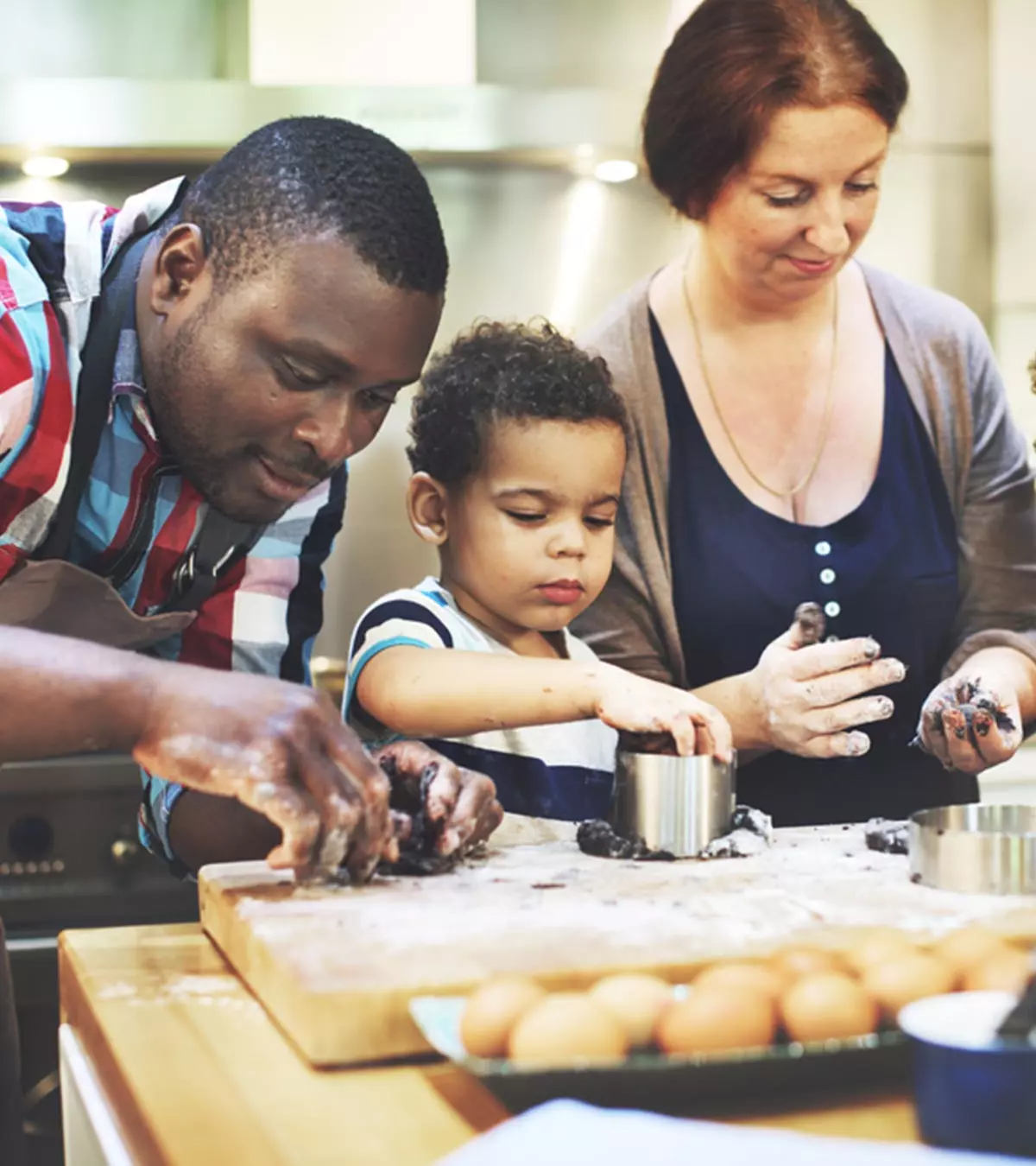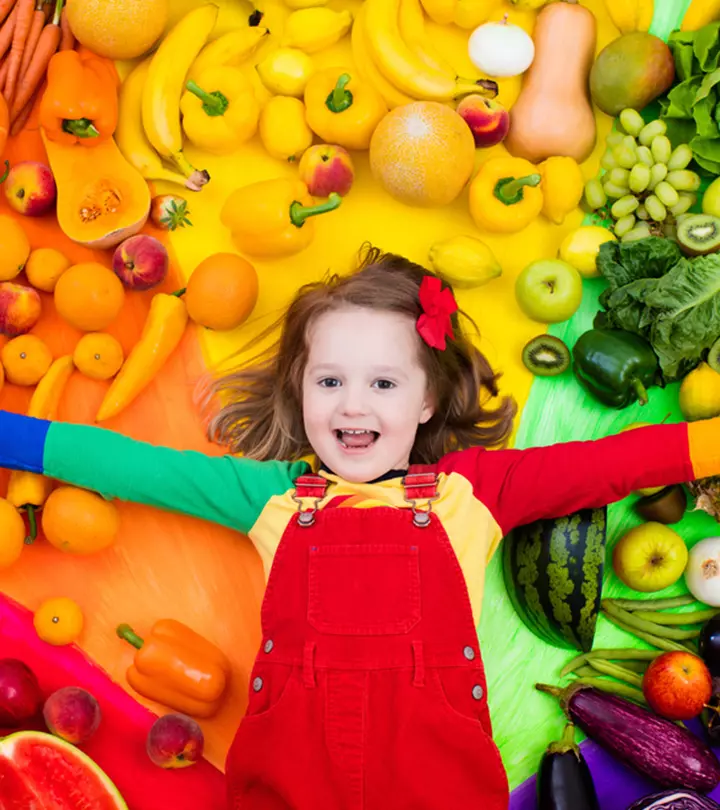
Image: Shutterstock
“Take what you’ll eat and eat what you take”. Growing up, you must have heard this, and you’ve tried to teach this to your kids as well. Yet, it is a piece of advice seldom heeded. All around the world we waste a lot of food. The UN has adopted the Sustainable Goal of achieving Zero Hunger by 2030, but we aren’t on track as the trends suggest. Current estimates show that around 690 million people are hungry, and a quarter of a billion people worldwide are on the brink of starvation (1). Roughly one-third of the food produced for human consumption gets wasted each year. So, the impact of food lost and wasted is shocking — squandering resources like people, water, land, energy, and capital ultimately contribute to climate change and global warming (2).
Children are our future. The knowledge they imbibe at an early age can prompt a lifetime of habits. So, making your kids aware of preserving precious resources and minimizing the heavy toll on our planet due to food wastage can go a long way. It can spark children’s insight and inspire them to do their part because we’ve got to take care of our planet together.
World Food Day is celebrated internationally on the 16th of October every year to celebrate the founding day of the United Nations Food and Agriculture Organization (UNFAO). So, this World Food Day, let’s take the opportunity to spread the word and raise conscious kids who can model a healthy and sustainable lifestyle. If your kids are fussy eaters or waste massive amounts of food, it’s time you help them make a shift. Wondering how? Here’s what you could do as a parent to teach your kids to build a loving relationship with food and ultimately avoid wasting it:
1. Practice What You Preach
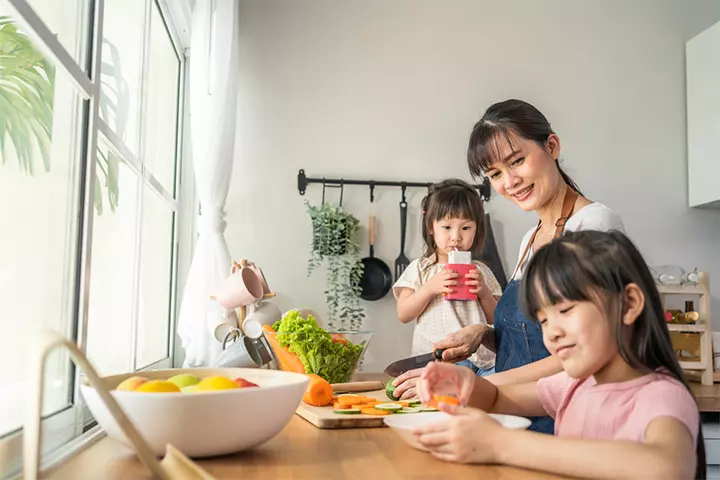
Image: Shutterstock
It’s important to model healthy habits that your kids can learn from. When your children watch you wasting food and dumping it in the backyard or straight into your trash bins, they are bound to pick up that habit. As a parent, you must instill responsible food usage in your kids and even teach them to share it with those in need. Remember, this doesn’t only apply at home. Children should be taught to avoid food wastage even when they’re eating out at restaurants or someone else’s place.
2. Shop, Cook, And Eat Together
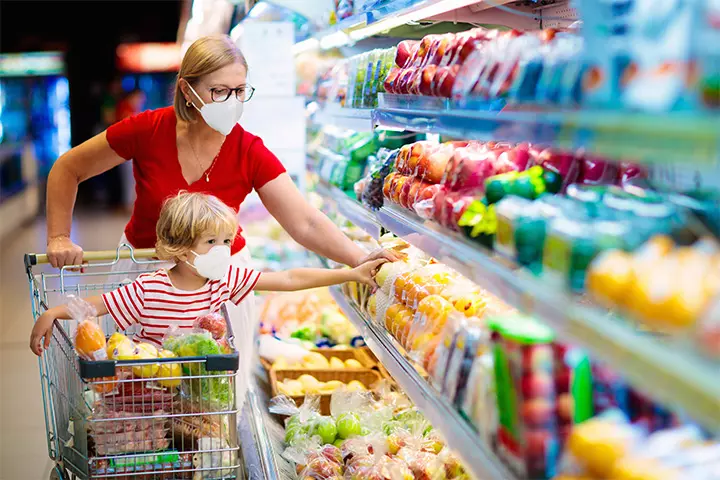
Image: Shutterstock
Exposing your children to the wonders of nature available around us in various shapes and colors is essential. To encourage dialogues about food and its merits, take your kids out with you to shop for locally available produce. Engage them in activities like gardening or cooking together (divide the chores). Most importantly, eat together as a family as this will help them waste less food. Studies show that eating with the family can bring down the thoughtless consumption of food and inspire everyone to have high-quality diets that keep them fuller for longer. This will reduce the tendency to reach out to unhealthy and least satisfying options (3). When they are involved in the whole process of preparing the meal, their interest in the food will be more.
3. Build Positive Conversations Around Food
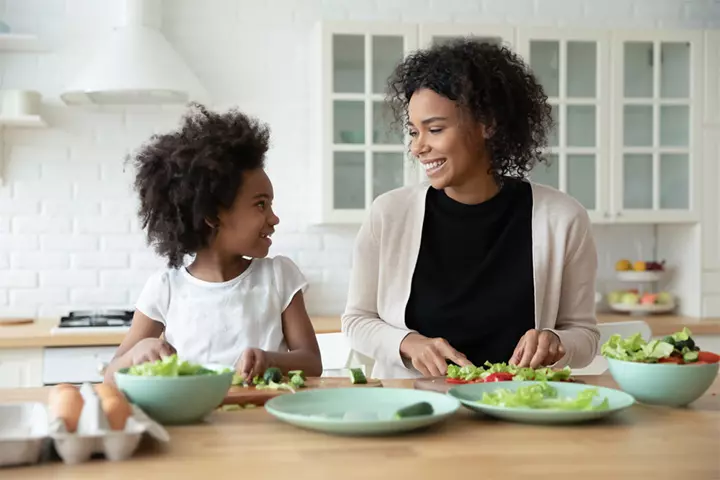
Image: Shutterstock
Making negative comments about food can drive kids into unhealthy relationships with food or even develop eating disorders. Conversations should center on eating fresh and natural foods. Help them practice intuitive eating, listening to what your body tells you — how much and how often to eat. As you begin to talk to your kids about food, they’ll soon start putting the “food for thought” into practice. Gradually but surely, they will develop a positive attitude towards fresh and organic food and naturally get inclined at preferring them over junk food. Here are some conversation starters that you can begin with your child today:
- “Do you eat all the food that you take to school for lunch? What happens to the wasted food, if any?”
- “What foods would you pick if given a choice? Why?”
- “Do you share your food?”
- “Can you think of a reason why we shouldn’t waste food?”
- “What do you do with your least favorite food items?”
- “What can you do to reduce food waste?”
4. Reuse the leftovers
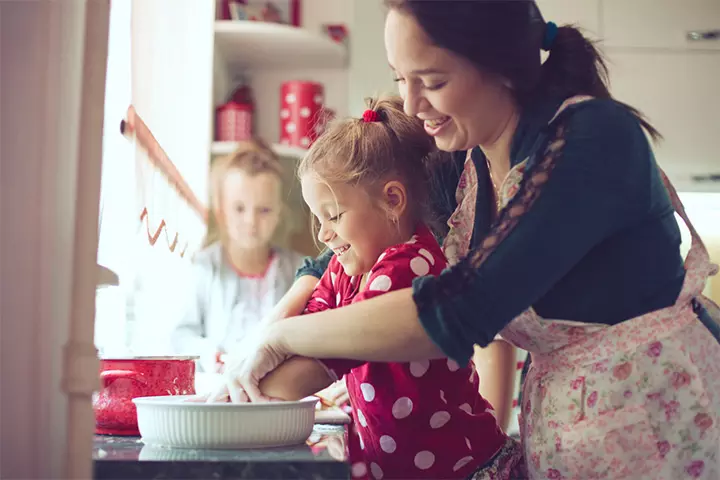
Image: Shutterstock
If your kids still have leftovers on their plate, pack them in a zip-lock bag or a BPA-free container (to avoid toxicity) for later consumption. So, when they feel hungry again, they can have what was kept aside from the previous meal. Get creative with your cooking, figure out recipes to use leftover food, and turn them into delicious meals. Kids generally love fun and play, so you can get creative and prepare fun meals eg. fries shaped like stars and the moon, using fun colors and combinations, etc. It could take a while before they get used to the idea, but eventually, they’ll learn.
5. Teach Them That Beauty Is On The Inside
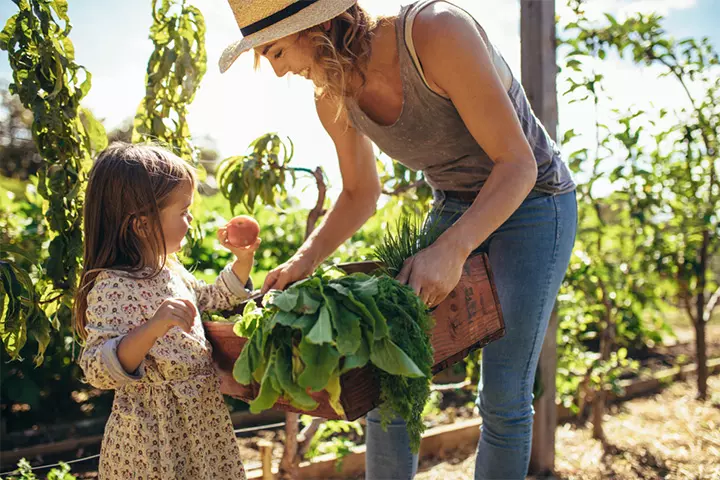
Image: Shutterstock
This one teaches them a valuable lesson on life — never judge a book by its cover! Kids are often found reaching out for food that looks good or pristine. But let them know that singling out fruits and veggies because of their appearance is wrong. Fruits and veggies don’t come in fancy packages, but that does not necessarily mean they taste horrible. In fact, these could be power-packed with nutrition and offer plenty of health benefits.
6. Practice Gratitude
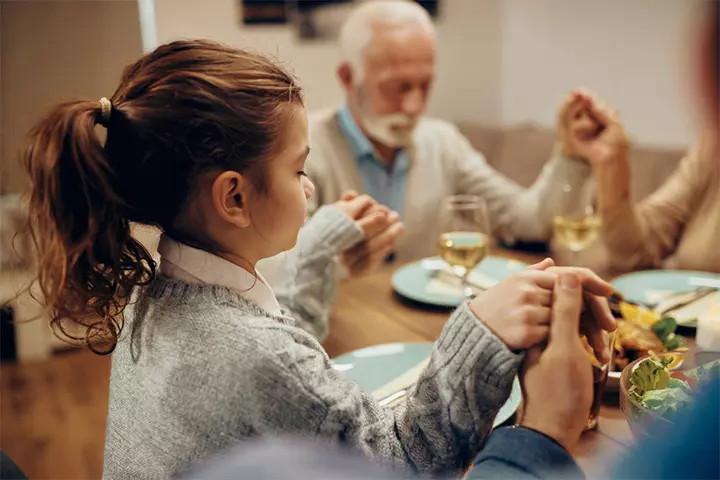
Image: Shutterstock
Tell your kids about the food shortage worldwide: that they are lucky enough to receive their meals on time, sufficient to fill their stomachs. Also, make them aware of the negative consequences of wasting food and avoid being lenient about the rules, or they could get back to the old ways of expressing fussiness.
The amount of food wasted globally is a harsh reality that we cannot turn a blind eye to. But all isn’t lost. By helping your kids imbibe some good habits around food consumption, your kids and you can do your bit for the environment and the planet at large. What lessons have you taught your kids about food? Do share your stories with us in the comments below!
References
- Goal 2: Zero Hunger
https://www.un.org/sustainabledevelopment/hunger/ - Worldwide food waste
https://www.unep.org/thinkeatsave/get-informed/worldwide-food-waste - Exploring the Role of Family Functioning in the Association Between Frequency of Family Dinners and Dietary Intake Among Adolescents and Young Adults
https://jamanetwork.com/journals/jamanetworkopen/fullarticle/2715616
Community Experiences
Join the conversation and become a part of our nurturing community! Share your stories, experiences, and insights to connect with fellow parents.












